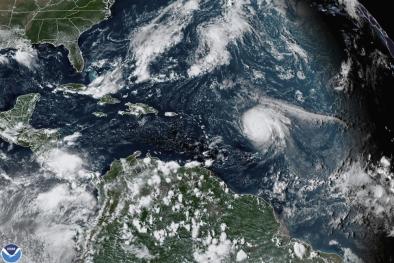Science Source
Multi-model attribution of upper-ocean temperature changes using an isothermal approach
- States that both air-sea heat exchanges and changes in ocean advection have contributed to observed upper-ocean (i.e. ~200 m) warming most evident in the late-twentieth century
- States, however, that it is predominantly via changes in air-sea heat fluxes that human-induced climate forcings, such as increasing greenhouse gases, and other natural factors such as volcanic aerosols, have influenced global ocean heat content
- The present study builds on previous work using two different indicators of upper-ocean temperature changes for the detection of both anthropogenic and natural external climate forcings
- Compares mean temperatures above a fixed isotherm with the more widely adopted approach of using a fixed depth
- Presents the first multi-model ensemble detection and attribution analysis using the fixed isotherm approach to robustly detect both anthropogenic and natural external influences on upper-ocean temperatures
- States that although contributions from multidecadal natural variability cannot be fully removed, both the large multi-model ensemble size and properties of the isotherm analysis reduce internal variability of the ocean, resulting in better observation-model comparison of temperature changes since the 1950s
- Shows that the high temporal resolution afforded by the isotherm analysis is required to detect natural external influences such as volcanic cooling events in the upper-ocean because the radiative effect of volcanic forcings is short-lived
Related Content
Science Source
| Science of The Total Environment
A quantitative analysis of marine heatwaves in response to rising sea surface temperature
Headline

Mar 22, 2023 | Washington Post
Earth’s oceans are showing early and surprising record warming
Headline

May 25, 2022 | Climate Nexus Hot News
NOAA Forecast Busier Than Average Atlantic Hurricane Season For 7th Year In A Row
Science Source
| Advances in Atmospheric Sciences
Another Record: Ocean Warming Continues through 2021 despite La Niña Conditions
Lijing Cheng, John Abraham, Kevin E. Trenberth et al


